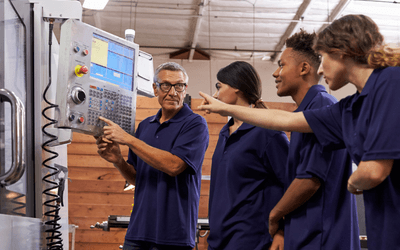Automation, robots and artificial intelligence (AI) receive a lot of bad press. Whether it be the less informed, media hyperbole or out of context comments from world-renowned physicists. The mere mention of this relatively new technology tends to bring with it negative connotations founded in science fiction.
The fact is it may be necessary to displace certain jobs in favour of an automated process to benefit everyone in the long term. Looking at this in a positive light gives us the opportunity to upskill our human workers to get them to work in more interesting, fulfilling roles. Knowledge based roles that perhaps involve more creativity or social interaction or a higher level of purpose.
Although experts say that over a third of jobs are at risk from automation, and despite the job losses in certain sectors - primarily within the manufacturing and retail world - there have been many jobs created, with over 1 million in healthcare alone. Add to this the fusion of industrial production and the connected world that is not only improving the manufacturing process, but is creating more jobs.
The concern about job losses may seem irrational when looking at the bigger picture as one of the main issues companies are facing are skill shortages, especially within STEM (Science, Technology, Engineering and Mathematics) businesses. There’s no danger of a shortage of jobs, quite the opposite in fact. The majority of companies have found it difficult to recruit staff with the required skills in the last 12 months alone and only expect the skill shortages to worsen.
AI and automation can be a positive change that we need to think of as a useful collaboration tool rather than the enemy.
We cannot avoid the fact that technology will see robots get more sophisticated and displace certain jobs. However, its rise will also create many new work opportunities and leave many that are difficult to automate untouched.









